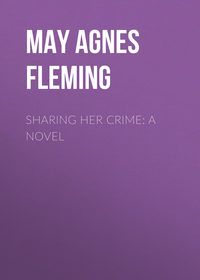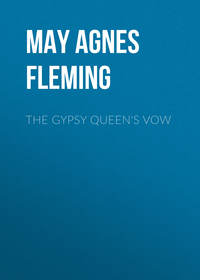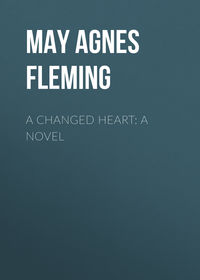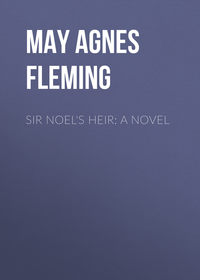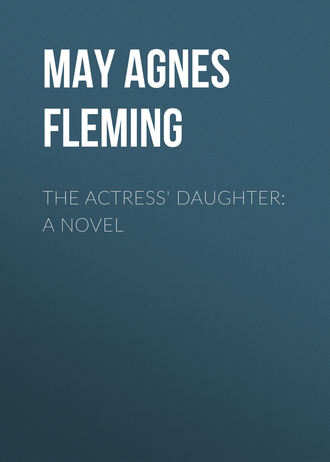
The Actress' Daughter: A Novel
Never was there a more restless, eccentric, tormenting bride-elect than Georgia. From being positively wild, she became superlatively wildest, and drove Miss Jerusha and Mr. Wildair daily to the verge of desperation for the next two weeks. She laughed at him, fled from him, refused to take a walk with him or sing to him, and made herself generally so provoking, that Richmond vowed she was wearing him to a skeleton, and threatened awful vengeance at some period fast forthcoming. And Georgia would laugh the shrill elfish laugh of her childhood, and fly up to her room, and lock herself in, and be invisible until he had gone.
Georgia wanted Emily to be her bride-maid, but when Emily heard that the Rev. Mr. Barebones was to officiate on the occasion, she refused. Georgia, who was not particular who performed the ceremony of "enslaving her," as she called it, asked Richmond to allow Father Murray to unite them; but, to her surprise, Richmond's brow darkened, and he positively refused. Georgia was inclined to resent this at first; but then she considered it might arise from conscientious scruples, and though she had none of her own, yet she respected them in others, and so she yielded, and Miss Becky Barebones, a gaunt damsel, whose looks were faintly shadowed forth in her name, gladly consented to "stand up" with her; while a young gentleman from the city, a brother lawyer of Richmond's, was to perform the same office for him.
And so old Father Time, who jogs on unrestingly and never harries for weddings or funerals, kept on his old road, and brought the bridal morning at last. A lovely morning it was – a gorgeous, golden September day, with hills, and river, and valleys all bathed in a golden haze; just the sort of a day our tropical, wild-eyed bride liked.
At early morning all Burnfield was astir, and crowding toward the little sea-side cot, to catch a glimpse of the elegant bridal carriage and gayly decked horses, and, perhaps, be fortunate enough to obtain a peep at the happy pair.
Inside the cottage all was bustle and excitement. Out in the kitchen (to begin at the beginning, like the writer of the "House that Jack Built,") Fly had been ignominiously deposed, to make way for the accomplished cook from Richmond House, who for the past week had been concentrating his stupendous intellect on the bridal breakfast, and had brought that dejeuner to a state of perfection such as the eye, nor heart, nor palate of man had ever conceived before. There were also the two fascinating young footmen, making themselves generally useful with a sort of lofty condescension and dignified contempt for everything about them, except when they met the withering eye of Miss Jerusha, and then they wilted down, and felt themselves dwindling down to about five inches high. There was Mrs. Hamm, in black velvet, nothing less, and so stately, and so politely dignified, that the English language is utterly unable to do justice to her grandeur. There was Miss Jerusha, in rustling brown satin, her wildest dreams realized, perfectly awful in its glittering folds, enough to strike terror into the heart of a Zouave, with a flashing ruby brooch, and a miraculous combination of lace and ribbons on her head, all broke out in a fiery eruption of flaring red flowers, which were in violent contrast to her complexion – that being, as the reader is already aware, decidedly, and without compromise, yellow. And, lastly, there were our two friends, the Betsey Periwinkles, looking very much astonished, as well they might, at the sudden change that had taken place around them; and, evidently considering themselves just as good as anybody there, they kept poking themselves in the way, and tripping up the company generally, and the two fascinating footmen in particular, invoking from those nice individuals "curses, not loud but deep." There was the Rev. Mr. Barebones, gaunt and grim in his piety; and the Rev. Mrs. Barebones, a severe female, with a hard jaw and stony eye; and there was Mrs. Tolduso, whom Miss Jerusha admitted just to dazzle with her brown satin; and there were ever so many other people, until it became a matter of doubt whether the bridal party would have room to squeeze through.
In the hall stood Richmond Wildair, looking very handsome and very happy indeed, while he waited for Georgia to descend. Mr. Curtis, his friend, resplendent in white vest and kids, lounged against the staircase, caressing his mustache, and inwardly raging that that flagstaff of a Becky Barebones was to be his vis-a-vis, instead of sweet, blooming little Emily Murray.
Up stairs in her "maiden bower" was our Georgia, under the hands of Emily, and Becky, and one of the spruce dressmakers, being "arrayed for the sacrifice," as she persisted in calling it. And if Georgia Darrell, in her plain cottage dress, was beautiful, the same Georgia in her white silk, frosted with seed pearls, enveloped in a mist-like lace vail, and bearing an orange wreath of flashing jewels on her regal head, was bewildering, dazzling! There was a wild, glittering light in her splendid oriental eyes, and a crimson pulse kept beating in and out like an inward flame on her dark cheek, that bespoke anything but the calm, perfect peace and joy of a "blessed bride."
Was it a vague, shadowy terror of the new life before her? Was it distrust of him, distrust of herself, or a nameless fear of the changes time must bring? She did not know, she could not tell; but there was a dread, a horror of she knew not what overshadowing her like a cloud. She tried to shake it off, but in vain; she strove to strangle it at its birth, but it evaded her grasp, and loomed up a huge misshapen thing between her mirror and the shining beautiful image in its snowy robes there revealed.
Little Emily Murray, quite enchanting in a cloud of white muslin, and no end of blue ribbons, kept fleeting about, hardly knowing whether to laugh or cry, and alternately doing both. She was so glad Georgia was going to be a great lady, and so sorry for losing the friend she loved that it was hard to say whether the laughing or crying had the best of it. And there, on the other side, stood Miss Barebones, as stiff and upright as a stove-pipe, in a crisp rattling white dress and frozen-looking white lilies and petrified rosebuds in her wiry yellow hair, with all the piety and grimness of many generations of Barebones concentrated in her.
And now all is ready, and, "with a smile on her lip and a tear in her eye," Emily puts her arm around Georgia's waist and turns to lead her down stairs, where her lover so impatiently awaits the rising of his day-star, and Miss Barebones and the trim little dressmaker follow. And Georgia involuntarily holds her breath, and lays her hand on her breast to still her high heart-beating that can almost be heard, and goes down and finds herself face to face with the future lord of her destiny. And then Emily kisses and relinquishes her, and she looks up with the old defiant look he knows so well in his handsome young face, and he smiles and whispers something, and draws her arm within his and turns to go in. And then Mr. Curtis swallows a grimace, and offers his arm to Miss Barebones, and that wise maiden gingerly lays the tips of her white kid glove on his broadcloth sleeve, and with a face of awful solemnity is led in, and the ceremony commences. And all through it Georgia stands with her eyes burning into the floor, and the red spot coming and going with every breath on her cheek, and hardly realizes that it has commenced until it is all over, and she hears, "What God hath joined together let no man put asunder." And then there is crowding around and a great deal of unnecessary kissing done, and Emily and Miss Jerusha are crying, and Mr. Curtis and Mr. Barebones, and the rest are shaking hands and calling her "Mrs. Wildair," and then, with a shock and a thrill, Georgia realizes she is married.
Georgia Darrell is no more; the free, wild, unfettered Georgia Darrell has passed away forever, and Georgia Wildair is unfettered no longer; she has a master, for she has just vowed to obey Richmond Wildair until "death doth them part." And her heart gives a great bound, and then is still, as she lifts her eyes in a strange fear to his face, and sees him standing beside her smiling and happy, and looking down on her so proudly and fondly. And Georgia draws a long breath, and wonders if other brides feel as she does, and then she tries to smile, and reply to their congratulations, and the strange feeling gradually passes away, and she becomes her own bright, sparkling self once more.
And now they are all sitting down to breakfast, and there is a hum of voices, and rattling of knives and forks, and a clatter of plates, and peals of laughter, and everybody looks happy and animated, and Miss Jerusha and Emily dry their tears and laugh too, and the fascinating footmen perform the impossibility of being in two or three places at once, and speeches are made, and toasts are drank, and Mr. Wildair gets up and replies to them, and thanks them for himself and his wife. His wife! How strange that sounds to Georgia. Then she sees through it all, and laughs and wonders at herself for laughing; and Mr. Curtis, sitting between Miss Barebones and Emily Murray, totally neglects the former and tries to be very irresistible, indeed, with the latter, and Emily laughs at all his pretty speeches, and doesn't seem the least embarrassed in the world, and Miss Barebones grows sourer and sourer until her look would have turned milk to vinegar; but nobody seems to mind her much. She notices, too, that Mr. Barebones perceptibly thaws out under the influence of sundry glasses of champagne, to that extent that before breakfast is over he refers to the time when he first met the "partner of his buzzum," as he styles Mrs. B., and shed tears over it. And Mrs. Hamm, in her black velvet and black lace mits, hides a sneer in her coffee cup at him, or at them all, and Miss Jerusha is looking at her with so much real tenderness in her eye that Georgia feels a pang of remorse as she thinks how ungrateful she has been, and how much Miss Jerusha has done for her. And then she thinks of her mother, and her brother Warren – her dear brother Warren – of whose fate she knows nothing, and of Charley Wildair and his unknown crime, and heaves a sigh to their memory. And then Betsey Periwinkle the second comes purring round her, and Georgia lifts her up and kisses the beauty spot on her forehead, and a bright tear is shining there when she lifts her head again, and Betsey purrs and blinks her round staring eyes affectionately, and then everybody is standing up, and Mr. Barebones, hiccoughing very much, is saying grace, and then she is going up to her room and finds herself alone with Miss Jerusha and Emily, who are taking off her bridal robes and putting on her traveling-dress.
And there she is all dressed for her journey, and Miss Jerusha holds her in her arms, and is kissing her, and sobbing as if her heart would break; and little Emily is sobbing, too, and Georgia feels a dreary, aching pain at her heart, at the thought of leaving her forever – for though she is coming back, they can never be the same to one another again in this world that they are now – but her eyes are dry. And then Miss Jerusha kisses her for the last time, and blesses her, and lets her go, and she follows her down stairs, where Richmond awaits her, to lead her to the carriage. And then there is more shaking of hands, until Georgia's arm aches, and a great deal of good-bying and some more female kissing, and then she takes her husband's arm and walks down the graveled walk to the carriage. And on the way she wonders what kind of a person Mrs. Wildair, Richmond's mother, may be, and whether she will like her new daughter, and whether that daughter will like her. And now she is sitting in the carriage, waving a last adieu, and the carriage starts off, and she springs forward and looks after the cottage until it is out of sight. And then she falls back in her seat and covers her face with her hands, with a vague sense of some great loss. But that picture she never forgets, of the little vine-wreathed cottage, with its crowd of faces gazing after her, and Miss Jerusha and little Emily crying at the gate. How she remembers it in after days – in those dark, dreadful days, the shadow of whose coming darkness even then was upon her!
They are whirling away, and away. She takes her hands from her face and looks up. They are flying through Burnfield now, and she catches a glimpse of the stately arches and carved gables of Richmond House, her future home, and then that, too, disappears. They are at the station, in the cars, with a crowd of others, but she neither sees nor cares for their curious scrutiny now. The locomotive shrieks, the bell rings, and away and away they fly. She falls back in her seat, and Georgia has left the home of her childhood forever.
CHAPTER XIII
AWAKENING
"Her cheek too quickly flushes; o'er her eyeThe lights and shadows come and go too fast,And tears gush forth too soon, and in her voiceAre sounds of tenderness too passionateFor peace on earth."I believe the established and time-honored precedent in writing stories is to bring the chief characters safely through sundry "hair-breadth escapes by flood and field," annihilate the vicious, make virtue triumphant, marry the heroine, and then, with a grand final flourish of trumpets, the tale ends.
Now, I hope none of my readers will be disappointed if in this "o'er true tale" I depart from this established rule. My heroine is married, but the history of her life cannot end here. Perhaps it would be as well if it could, but truth compels me to go on and depict the dark as well as the bright side of a fiery yet generous nature – a nature common enough in this world, subject to error and weakness as we all are, and not in the least like one of those impossible angels oftener read of than seen.
Jane Eyre says a new chapter is like a new scene in a play. When the curtain rises this time, it discloses an elegantly furnished parlor, with pictures and lounges, and easy-chairs, and mirrors, and damask hangings, and all the other paraphernalia of a well-furnished room – time, ten o'clock in the morning. A cheerful fire burns in the polished grate, for it is a clear, cold December day, and diffuses a genial warmth through the cozy apartment.
In the middle of the floor stands a little round table, with a delicate breakfast-service of Sevres china and silver, whereon steams most fragrant Mocha, appetizing, nice waffles, and sundry other tempting edibles. Presiding here is a lady, young and "beautiful exceedingly," robed in a rich white cashmere morning wrapper, confined at the slender waist by a scarlet cord and tassels, and at the ivory throat by a flashing diamond breastpin. Her shining jet-black hair is brushed in smooth bands off her broad, queenly brow, and the damp braid just touches the rounded, flushed cheek. Very handsome and stately indeed she looks, yet with a sort of listless languor pervading her every movement, whether she lounges back in her chair, or slowly stirs her coffee with her small, dark hand, fairly blazing with jewels.
Opposite her sits a young gentleman of commanding presence and graceful bearing, who alternately talks to the lady, sips his coffee, and reads the morning paper.
"Do put away that tiresome paper, Richmond," said the lady, at last, half impatiently. "I don't see what you can possibly find to interest you in those farming details, and receipts for curing spasms in horses, and making hens lay. Of all stupid things those country papers are the stupidest."
"Except those who read them," said the gentleman, laughing. "Well, I bow to your superior wisdom, and obey, like a well-trained husband. And now, what are your ladyship's commands?"
"Talk," said the lady, yawning behind the tips of her fingers.
"Willingly, my dear. On what subject? I am ready to talk to order at a moment's notice."
"Well, I want to know if you have given up that Washington project? Are we to spend the winter in Burnfield?"
"I think so – yes," said Richmond, slowly. "It will be better, all things considered, that we should do so, and early in the spring we will start on our continental tour. Are you disappointed at this arrangement, Georgia?"
"Disappointed? Oh, no, no," said Georgia, with sparkling eyes. "I am so glad, Richmond. It seems so pleasant, and so much like home to be here, with no strange faces around us, and all those dreadful restraints and formalities at an end. I was so tired of them all in New York."
"And yet you used to long so ardently for life in those large cities some time ago, Georgia. New York was a Paradise in your eyes – do you remember?"
"Oh, yes," said Georgia, laughing; "but that was because I knew nothing about it. I was dreadfully tired of Burnfield, and longed so for a change. 'Tis distance lends enchantment to the view,' you know, and the anticipation was somewhat different from the reality."
"You did not like the reality?"
"No," said Georgia, with her usual truthful promptness.
"And yet I did everything to make you happy – you never expressed a wish that I did not gratify."
Tears sprang to Georgia's eyes at the implied reproach.
"Dear Richmond, I know it. It seems very ungrateful in me to talk so; but you know what I mean. I do not like strangers, and I met so many there; there were so many restraints, and formalities, and wearying ceremonies to be gone through, that I used to grow almost wild sometimes, and feel as if I wanted to rush out and fly, fly back to dear old Burnfield again, and never leave it. And then, those ladies were all so elegant and grand, and could keep on saying graceful nothings for hours, while I sat mute, tongue-tied, unable to utter a word of 'small talk,' and feeling awkward lest I should disgrace you by some dreadful gaucherie. Oh, Richmond, I was so proud, and fearless, and independent before I was married."
"Too much so, Georgia," he interrupted, gravely.
"And now," she went on, unheeding his words, save by the deeper flush of her cheek. "I am almost timid, for your sake. When I was among all those people in New York I did not care for myself, but I was so afraid of mortifying you. I knew they used to watch Richmond Wildair's country bride to catch her in some outlandish act; and, oh, Richmond, when I would think of it, and find so many curious eyes watching me, as if I were some strange wild animal, I used to grow positively nervous – I, that never knew what nerves were before, and I used to wish – don't be angry, Richmond – that I had never married you at all. You used to call me an eaglet, Richmond, and I felt then like one chained and fettered, and I think I should have died if you had made me stay there all winter."
There was a passionate earnestness in her voice that did not escape him, but he answered lightly:
"Died! Pooh! don't be silly, Georgia. I did see that you were painfully anxious at times, so much so that you even made me nervous as well as yourself. You must overcome this; you must learn to be at ease. Remember, those are the people with whom you are to mingle for the rest of your life – not the common folks of Burnfield."
"They are a stiff, artificial set. I don't like them!" said Georgia, impetuously.
Richmond's brow darkened.
"Georgia!" he said, coldly.
"Perhaps it is because I have not become accustomed to my new position. Any one suddenly raised from one sphere of life to another diametrically opposite, must feel strange and out of place. Why, Richmond," she said, smiling, "I am not even accustomed to that grand little housekeeper of yours yet. Her cold, stately magnificence overwhelms me. When she comes to me for orders, I fairly blush, and have to look at my diamonds and silks, and recollect I am Mrs. Wildair, of Richmond House, to keep my dignity. It is rather uncomfortable, all this; but time, that works wonders, will, I have no doubt, make me as stiff, and solemn, and sublimely grand, as even – Mrs. Hamm."
His face wore no answering smile; he was very grave.
"You are not angry, Richmond?" she said, deprecatingly.
"Not angry, Georgia, but annoyed. I do not like this state of things. My wife must be self-possessed and lady-like as well as handsome. You must lose this country girl awkwardness, and learn to move easily and gracefully in your new sphere. You must learn to sit at the head of my table, and do the honors of my house as becomes one whom I have seen fit to raise to the position of my wife."
"Raise!" exclaimed Georgia, with one of her old flashes, and a haughty lift of her head.
"In a worldly point of view, I mean. Physically, mentally, and morally, you are my equal; but in the eyes of the world, I have made a mesalliance; and that world whose authority I have spurned is malicious enough to witness with delight your rustic shyness, to call it by no more mortifying name. Georgia, I knew from the moment I first presented you to my mother that this explanation must come; but, knowing your high spirit, I had too much affection for you to speak of it sooner, and if I wound your feelings now, believe me, it is to make you happier afterward. You are too impulsive, and have not dissimulation enough, Georgia; your open and unconcealed dislike for some of those you met in town made you many enemies – did you know it?"
"Yes, I knew it; and this enmity was more acceptable to me than their friendship!" flashed Georgia.
"But not to me. It is better to have a dog fawn on you than bark at you, Georgia. I do not say to you to like them, but you might have concealed your dislike. A smile and courteous word costs little, and it might have saved you many a bitter sneer."
"I cannot dissimulate; I never dissimulated; I never did anything so mean!" said Georgia, passionately.
"There is no meanness about it, Mrs. Wildair, and you might have spared the insinuation that I could urge you to do anything mean. Common politeness requires that you should be courteous to all, and I hope you will not mortify me again by any public display of your likes and dislikes."
Georgia arose impetuously from the table, and, with a burning cheek and flashing eye, walked to the window. What words can tell of the storm raging within her wild, proud heart, as she listened to his authoritative tone and words?
"It is necessary, too, that you should by degrees grow accustomed to what you call your strange position," he calmly went on, "before you enter the fashionable world at Washington, where you will make what you may call your debut. For that reason, while in New York, I invited a party of friends here to spend Christmas and New Year's, and you may expect them here now in less than a week."
She faced round as if her feet were furnished with steel springs, every feeling of rebellion roused into life at last.
"You did? And without consulting me?"
"Certainly, my dear. Have I not a right to ask my friends to my house?"
She laid her hand on her breast, as if to keep the storm within from breaking forth; but he saw it in the workings of her face.
"Come, Georgia, be reasonable," he said quietly. "I am sorry this annoys you, but it is absolutely necessary. Why, one would think, by your looks and actions, I was some monstrous tyrant, instead of a husband who loves you so well that he is willing to sacrifice his own fondness for solitude and quiet, that you may acquire the habits of good society."
She did not speak. His words had wounded her pride too deeply to be healed by his gentle tone.
"Well, Georgia?" he said, after a pause.
She turned her face to the window, and asked, huskily:
"Who are coming?"
"My mother and cousin, the Arlinfords, Mrs. Harper and her two daughters, Colonel and Mrs. Gleason, and their two sons, Miss Reid, and Mr. Lester."
"All I dislike most."
"All you dislike most, Mrs. Wildair?" he said, coolly. "What am I to understand by that?"
"What I say. I have not yet learned to dissimulate," she said, bitterly.
"Really, Mrs. Wildair, this is pleasant. I presume you forget my mother."
Georgia was silent.
"Am I to understand, Mrs. Wildair, that my mother is included in the catalogue of those you dislike?"
Georgia did not speak.
"Mrs. Wildair," he said, calmly, "will it please you to reply? I am accustomed to be answered when I speak."


